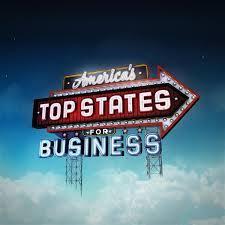 Despite much wringing of hands and awarding of tax breaks to various upper income and business folks, we Rhode Islanders are told our business climate IS still at the bottom. Thus I propose these seven modest suggestions for addressing this problem.
Despite much wringing of hands and awarding of tax breaks to various upper income and business folks, we Rhode Islanders are told our business climate IS still at the bottom. Thus I propose these seven modest suggestions for addressing this problem.
1. Ban any pro-union advocacy opinions in the state’s media. While talk radio mostly does this already, some pro-union opinions occasionally do slip into the Providence Journal, RI Future, and maybe other local papers. I’m sure business will appreciate it if we close this loophole.
2. Cut pay of public workers by 50%. Though public workers have already made concessions on pay, health care and pensions, some of them can still afford to drive. Halving their pay would not only lower the tax burden, but make more room on the roads for the important people.
3. Stop enforcing clean water laws. Not only will this too lower the tax burden, but as public water supply gets more polluted, investors will see opportunities here to sell more bottled water and also to make money in the health care system treating the people who persist in drinking public water and thus get sick.
4. Stop funding bike, pedestrian and transit programs. This will make the state more attractive to oil and auto companies. Also, by discouraging physical activity, this will also increase obesity, making Rhode Islanders less fit and thus less able to challenge pro-business programs. Those who persist in biking or walking can perhaps be made subject to a gasoline-avoidance fee that can generate revenue to subsidize business jets. But as there are proposals in the US House of Representatives to do something like this on a national level, we better do this quickly before we lose a competitive advantage over other states.
5. Sell all public beaches. Not only will this provide more shoreline for the rich to buy, but their view of the shore from their yachts will be improved if the hordes of riffraff on the public beaches are forced off.
6. End the sales tax on high-end cars. Though we already eliminated sales taxes on boats and private airplanes, the rich still have to pay sales taxes on BMWs, Cadillacs, Lexuses etc. It is not fair that their cars are not treated tax-wise the same way as their yachts and planes.
7. Require all low income folks to be servants to the business class for 3 days a year. After all, we know how hard it is to find good servants these days. The low income folks serving the rich could polish their cars or silver, cut the grass, mop the floors and such. Giving up only 3 days would not be too much of a burden, but think how much it could improve our business climate rankings as no other state does this. Indeed we can market this initiative by emphasizing the “Plantations” part of our official state name that we voted to keep. not that long ago.
Will these suggestions be seriously considered? Maybe.


 From the headlines, you would think that CNBC is the gold standard economic authority. After the cable news network released its 10th annual “
From the headlines, you would think that CNBC is the gold standard economic authority. After the cable news network released its 10th annual “